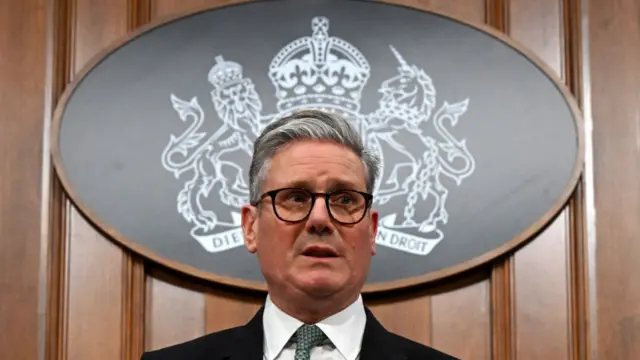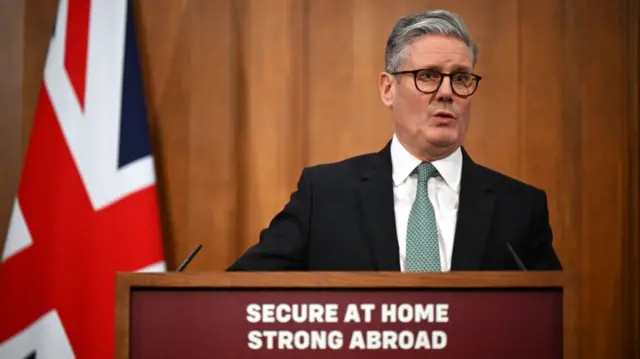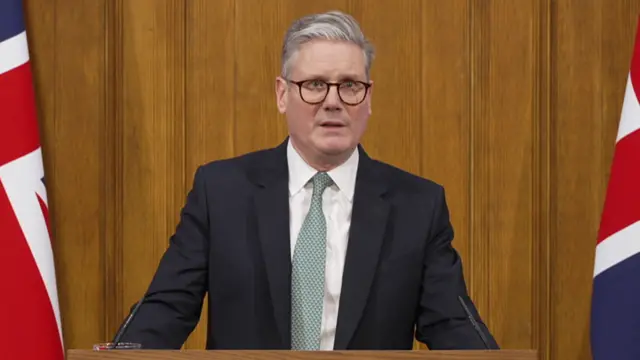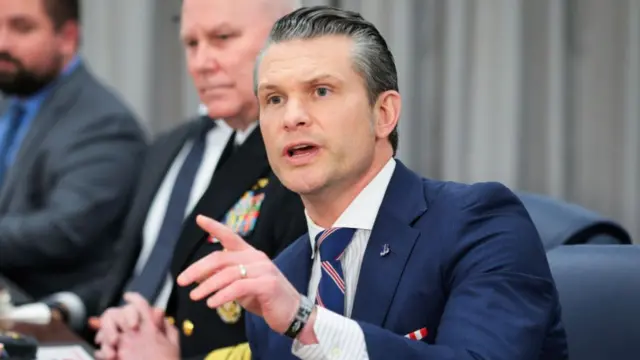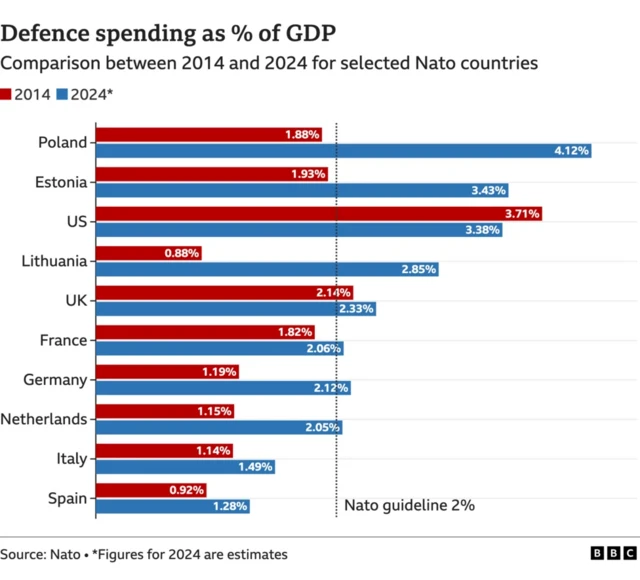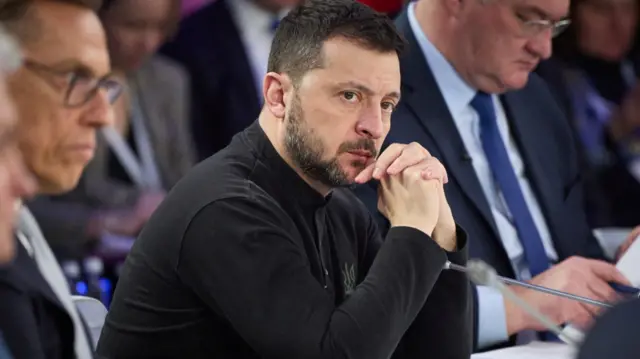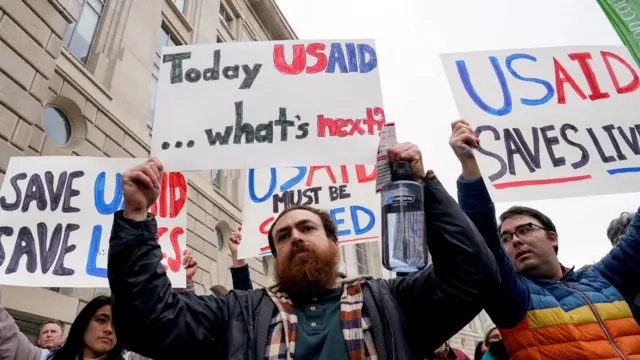A recap of what we just heard from Starmerpublished at 18:10 GMT 25 February
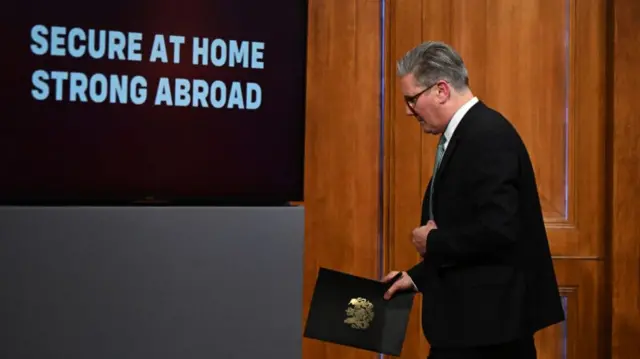 Image source, Getty Images
Image source, Getty Images"A dangerous new era" has propelled Prime Minister Keir Starmer to announce he's bringing forward a target to increase UK defence spending to 2.5% of GDP, a day after the third anniversary of Russia's full-scale invasion of Ukraine.
That's what he just told a group of reporters at Downing Street, after outlining his plan to increase increase defence spending by 0.2 percentage points, funded by cutting aid spending from 0.5% of national income to 0.3%.
Here's what else the PM - who'll tomorrow fly to Washington DC to meet Donald Trump - said:
- "Putin's aggression doesn't stop in Ukraine," adding that Russian spy ships "menace" British waters while the NHS has also fallen victim to cyber attacks
- He said the announcement today was not reactionary and has been coming for some time - and that he agrees with Trump that Europe (including the UK) must do more to defend itself
- And, ahead of his handshake with the US president, Starmer emphasised that the UK shouldn't be forced to choose between Europe and the US
Earlier on, we asked our correspondents to analyse what the UK's defence spending rise might mean - take a look at all of their views across economics and politics.
